New evidence shows AI adoption is beginning to dent white-collar employment. Junior hiring is falling fastest at firms integrating generative AI into their operations.
Many Americans worry that generative AI will take their jobs. And most research shows that white-collar roles are among the most vulnerable to automation. For now, that kind of large-scale disruption hasn’t materialized. According to the Yale Budget Lab, the share of office jobs in total employment has held steady since ChatGPT’s debut.
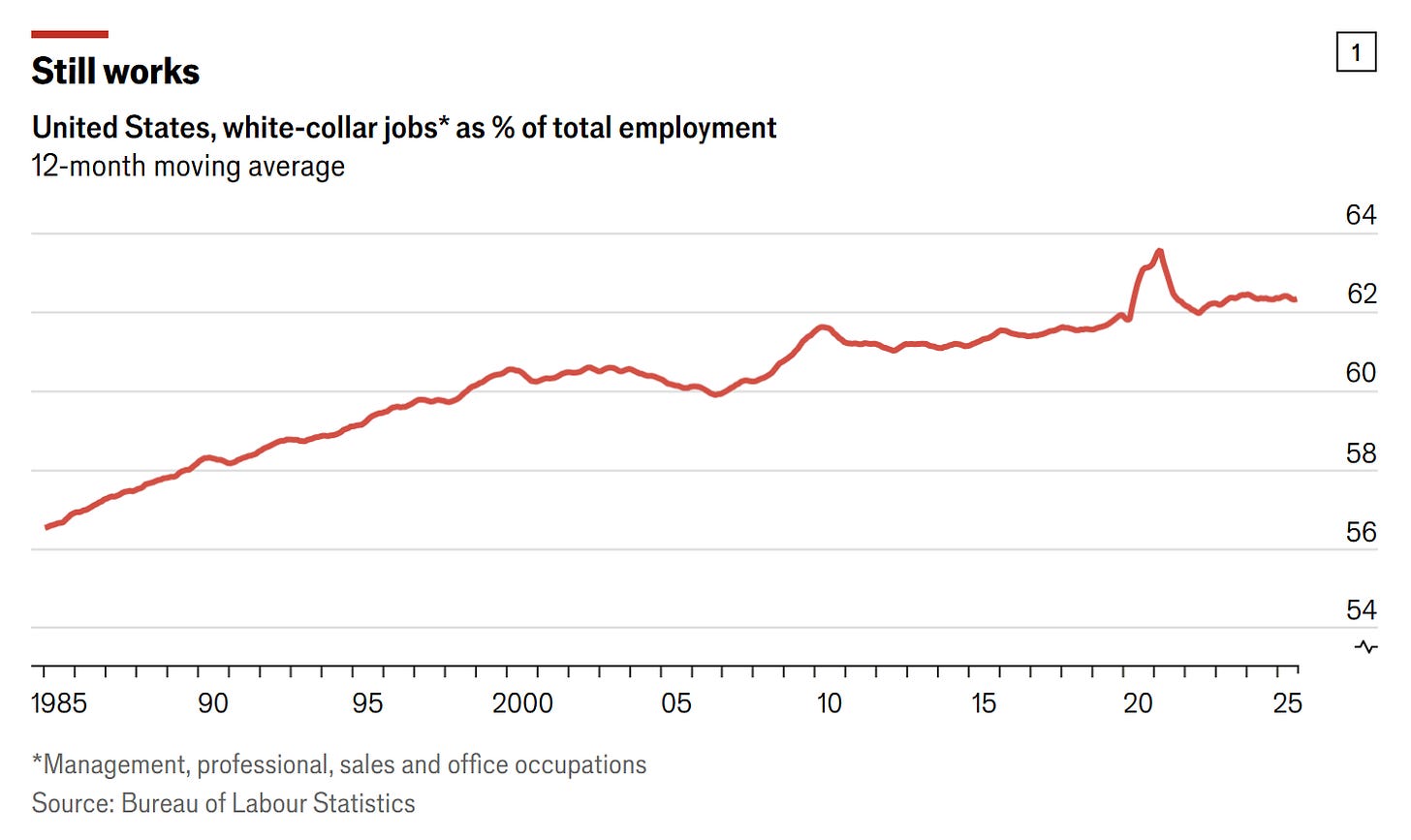
But a new study from Harvard PhD students suggests the first cracks are appearing, especially in junior positions.
To pinpoint which firms are actively adopting automation, the researchers tracked companies that hired “generative-AI integrators” between 2021 and 2025. Out of 200 million job postings, they identified 130,000 such openings across 10,600 firms, which they classified as “AI adopters.” Demand for these roles accelerated a few quarters after the release of ChatGPT 3.5. The remaining 274,000 companies that did not hire AI integrators served as a quasi-control group, firms not actively automating their processes.
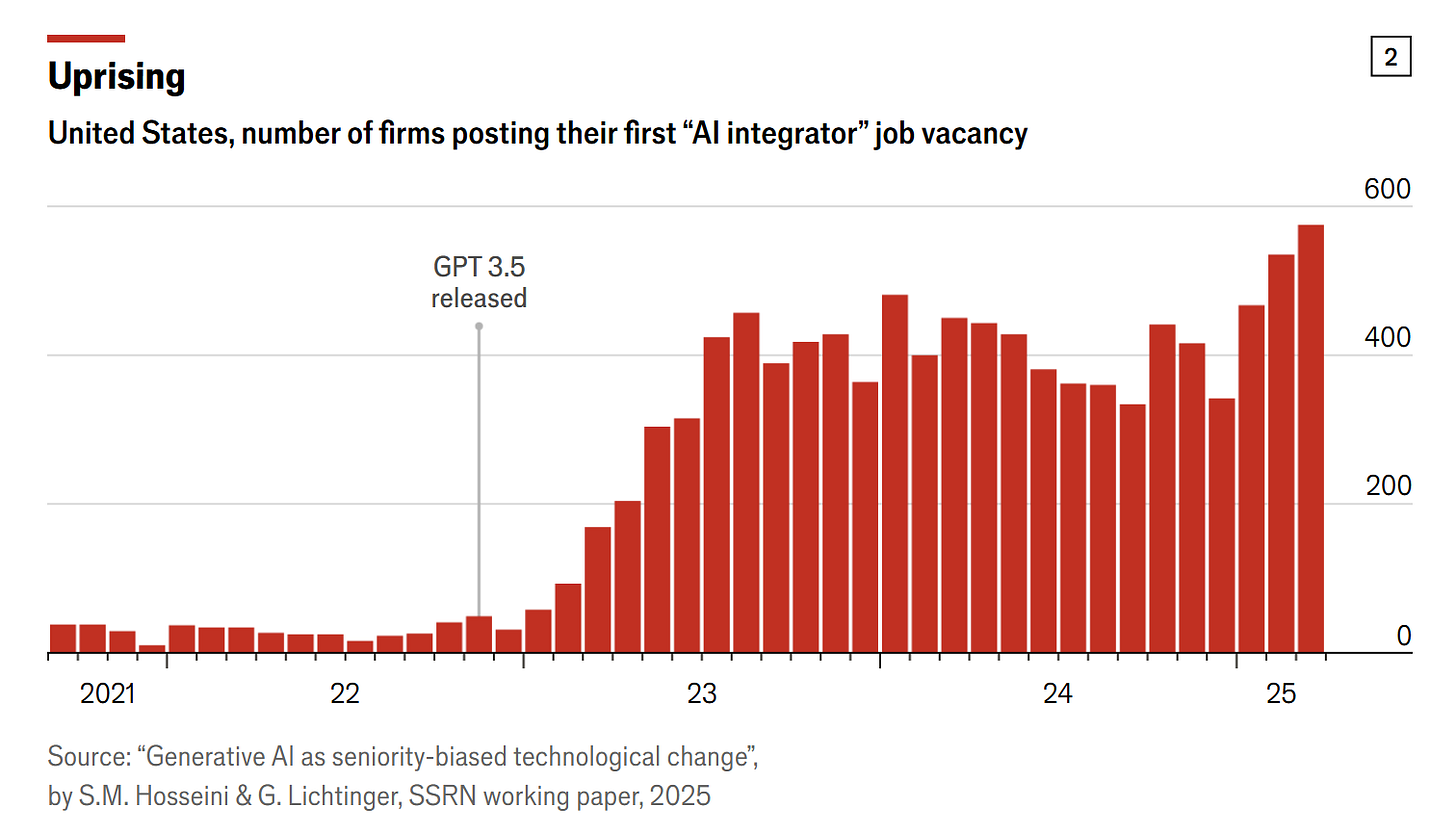
The researchers found clear differences in junior-level hiring between AI adopters and non-adopters. After 2023, entry-level hiring declined across all companies, but the drop was -7.7% sharper among AI adopters. By contrast, senior hiring remained steady at both types of companies. This pattern suggests that lower-level, task-based work has been easier to automate.
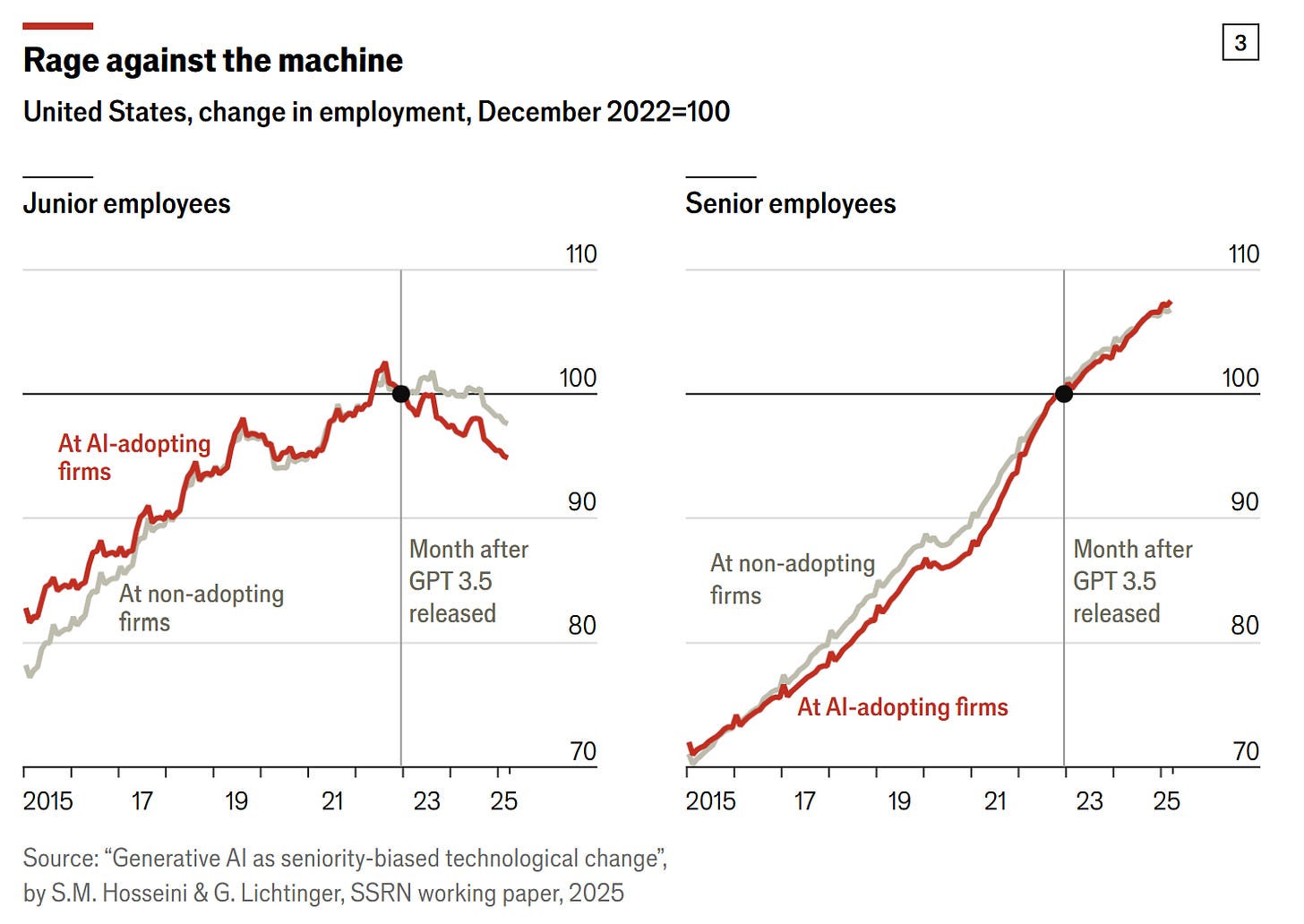
The researchers also examined how the decline in junior hiring varied by university prestige (1 = most prestigious; 5 = least prestigious). Interestingly, AI-adopter firms saw the steepest drop in hires from mid-tier colleges, while hiring from both top- and lower-tier schools declined the least. The likely explanation: Graduates from elite universities are still being groomed for leadership roles, while those from less selective schools remain attractive for their lower cost.
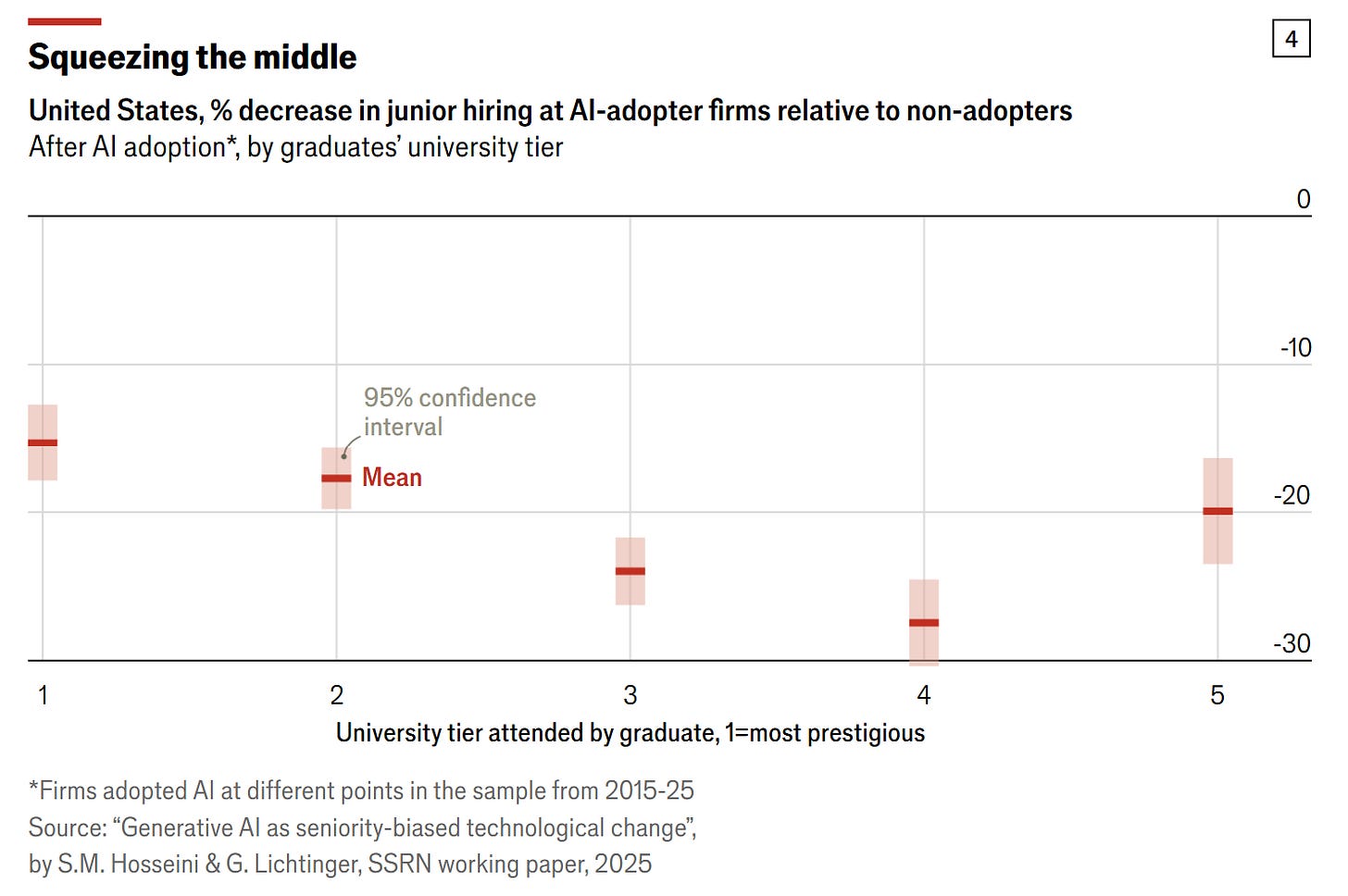
IMO, middle-skill white-collar workers face the greatest long-term risk from AI. Earlier waves of automation replaced muscle; this one replaces mindless rote thinking. Generative AI is encroaching on jobs that are cognitive but not creative. (See “Americans Fear AI in the Workplace.”)
A recent MIT report found that 95% of firms that have tried to adopt generative AI are thus far seeing “no measurable P&L impact.” (Full text of the MIT report is available here.) Of the 5% getting a significant lift, most are in tech and media industries—which is unsurprising, since many firms in both industries specialize in the proliferation of simulacra. And of all firms in other industries, the main LLM inroads are in low value-added front office tasks like media affairs, public relations, and (sad but true) customer service. Very few firms rely on LLM in high-value-added back office tasks where genuine creativity is required.
So this is my counsel for young adults seeking jobs. Advertise substantive skills, and showcase instances where you have accomplished things no one else could. Don’t highlight your facility with AI, except as a force multiplier. Instead, highlight your ability to be the sort of creator whose insights (writing, code, videos, whatever) AI will want to use as a template to share with others. LLMs are all about copying from someone who knows better than you do. If you persuade your prospective employer that you strive to become the original, not the copy, you will be invited to join the creative core of the firm. And once there, you may never feel threatened by AI again.




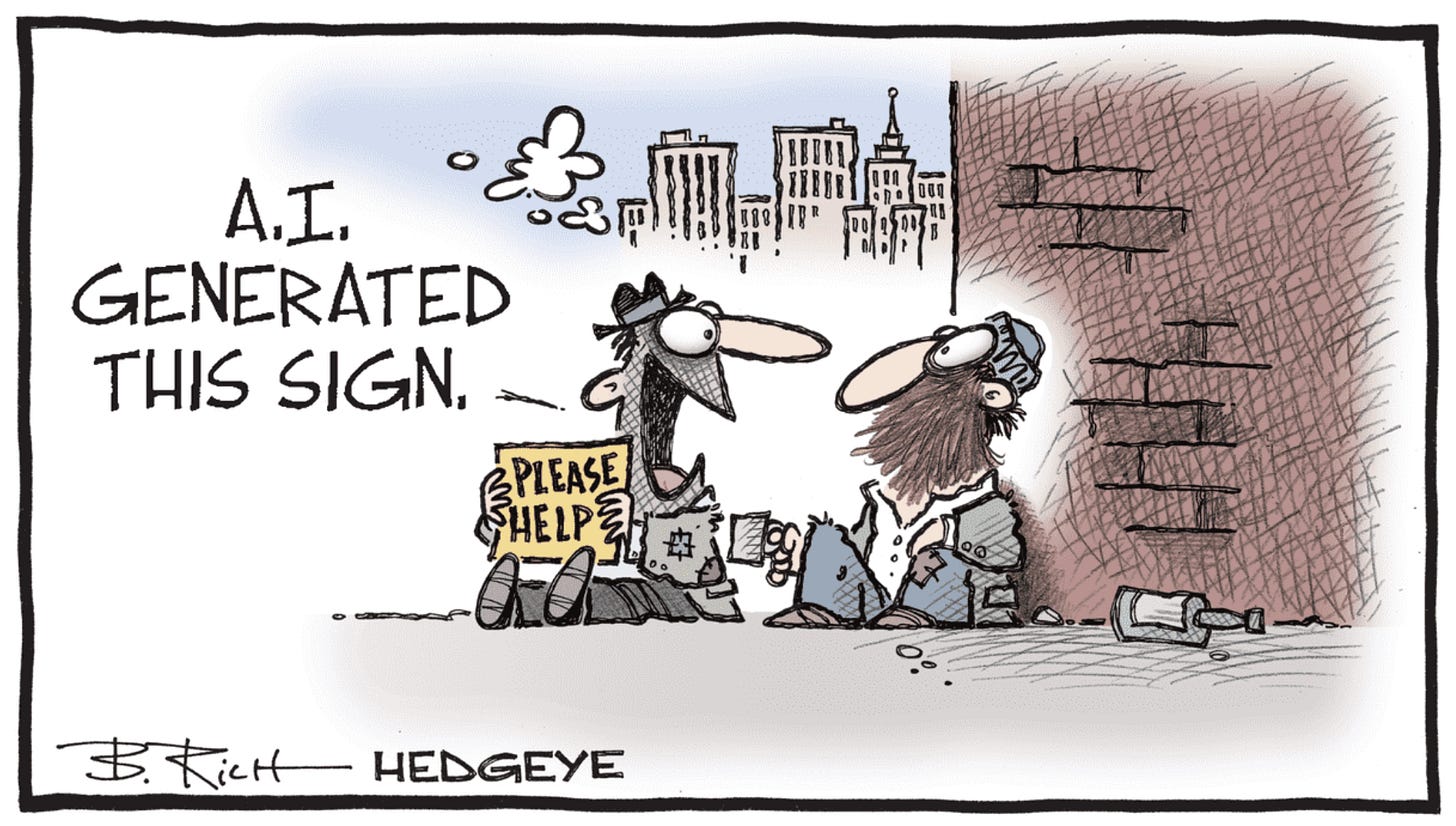
So is essentially middle management going to be reduced?